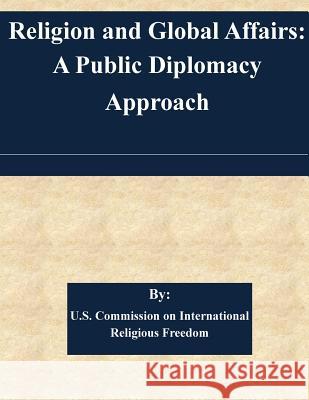Religion and Global Affairs: A Public Diplomacy Approach » książka
Religion and Global Affairs: A Public Diplomacy Approach
ISBN-13: 9781511429870 / Angielski / Miękka / 2015 / 94 str.
The first page of the most recent National Security Strategy (NSS) advises that "to succeed, we must face the world as it is." Increasingly, the foreign policy community has recognized that the world is often and powerfully shaped by religion. Many U.S government initiatives have acknowledged that effective global engagement requires improved understanding of religious dynamics. A 600-page Religious Engagement Report of the Interagency Working Group on Religion and Global Affairs has inventoried embassy engagement of religious communities abroad, and the White House's Office of Faith-based and Neighborhood Partnerships has committed to fostering interfaith cooperation and understanding. The Joint Chiefs of Staff have appointed military chaplains to serve as advisors on religious affairs overseas, and the U.S. Agency for International Development has developed a guide to help staff better understand conflict situations where religion is a factor. These initiatives reflect significant progress in the continuing U.S. effort to understand and engage religious factors. As experts have argued, the success of U.S. diplomacy in the next decade will be measured by "its ability to connect with the hundreds of millions of people throughout the world whose identity is defined by religion." Americans are well-positioned to connect with a religious world. Nearly 60 percent of Americans report that religion is "very important" in their lives, and about 40 percent attend a religious service at least once a week. The United States is also the most religiously diverse country in the world. Beyond various Christian traditions, at least 14 major religious traditions are represented in America, in addition to the 16 percent of citizens who do not belong to any particular religion. Half of Americans identify with one of dozens of Protestant denominations, but this proportion has declined as other religions are increasingly represented.











